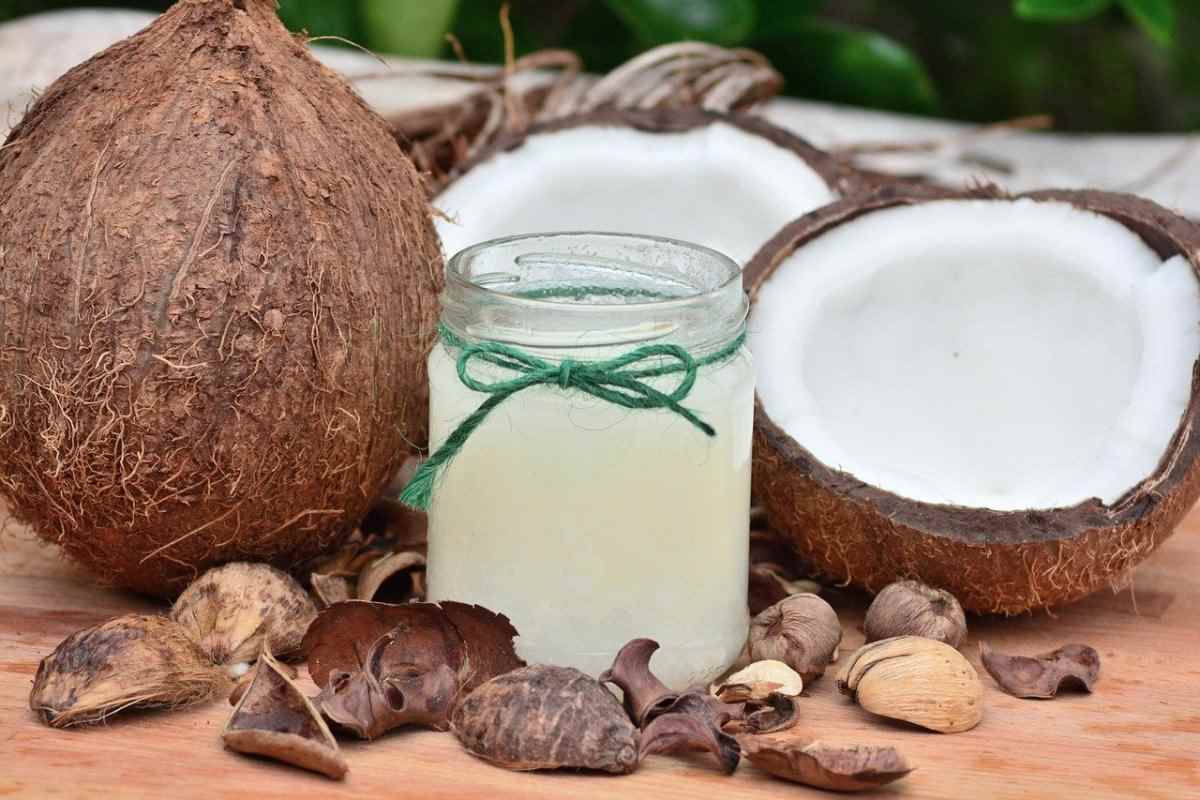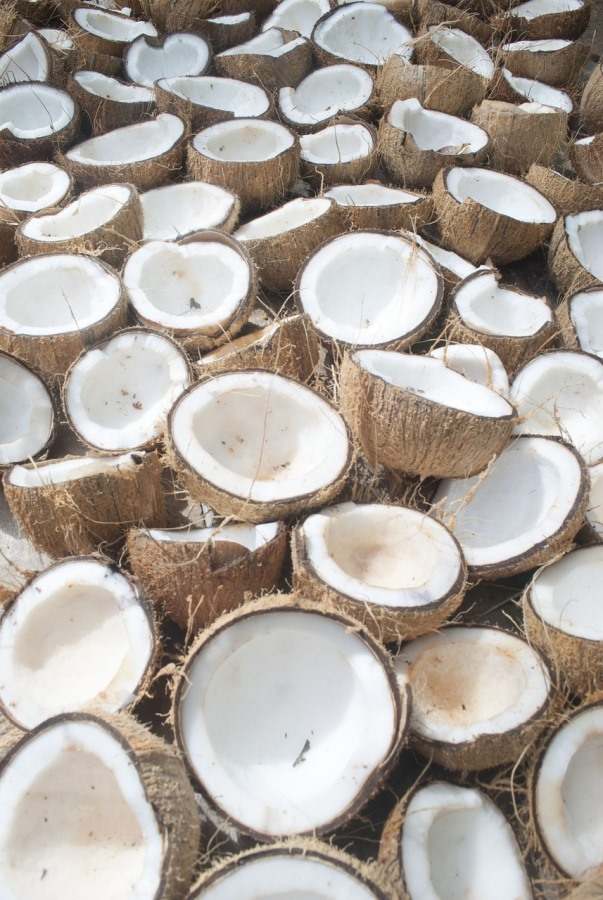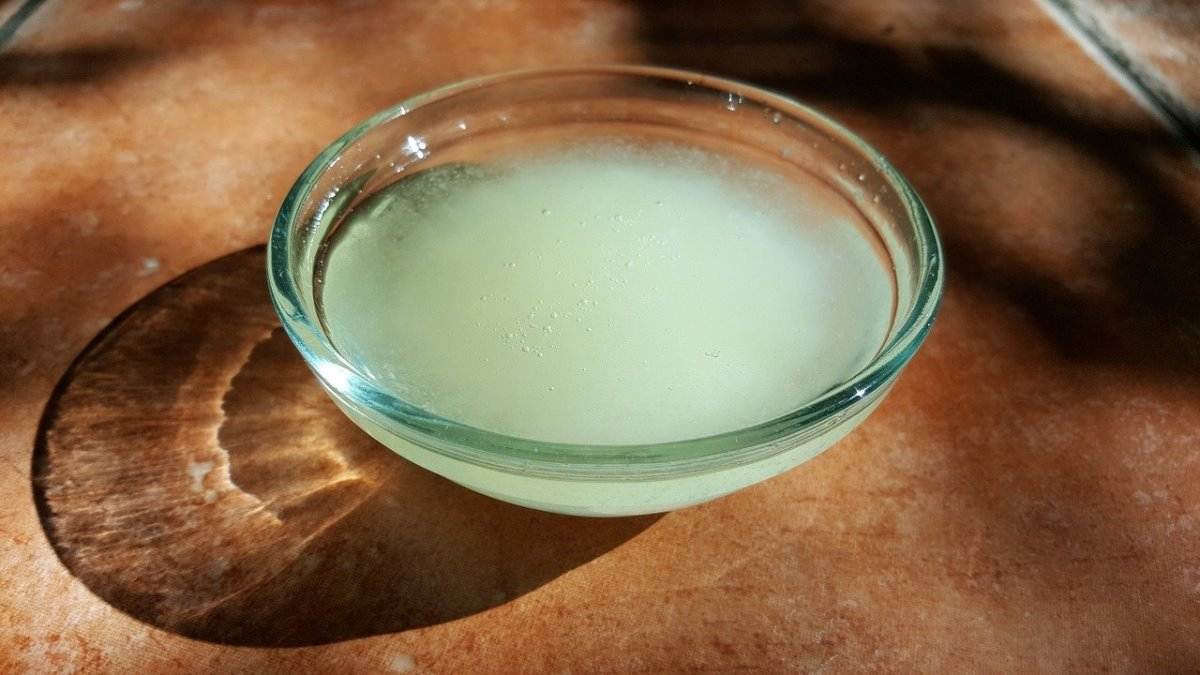Introduction to Virgin Coconut Oil Project Report(VCO), Manufacturing Business Plan: Hello friends, are you planning to start a virgin coconut oil business in India? Well, you are in right place. Virgin Coconut Oil (VCO) is gaining popularity as a functional food and people are getting awareness every day. It is estimated that VCO will experience tremendous growth in the market. Virgin coconut oil is naturally processed, without chemicals and additive-free item from fresh coconut meat or using the derivatives, which has not been processed under chemical methods after extraction. It is the cleanest form of coconut oil, water-white, comprises natural vitamin E, and has not experienced hydrolytic or atmospheric oxidation as attested by its very low free fatty acid percent and peroxide value. It has a mild to intense fresh coconut fragrance based on the type of process used for production.
A guide to Virgin Coconut Oil Project Report(VCO), Extraction Process and Manufacturing Business Plan

Virgin Coconut Oil (VCO) is extracted using fresh coconut milk sourced from matured coconut of 12 months old. VCO can be consumed in natural form without the need for further refining. Virgin coconut oil is popular for its MCTs (Medium Chain Triglycerides). The most important medium-chain fatty acid found in VCO is lauric acid. It comprises 48 % of VCO. Lauric acid has powerful anti-microbial characteristics capable of terminating disease-causing bacteria, fungi, viruses, and parasites. Researchers reported that the presence of medium-chain fatty acids in mother’s milk could be the primary ingredient that defends newborn children from infections for the first few months of their birth, while their immune system is still taking shape.
Uses of Virgin Coconut Oil
VCO has considerable advantages for therapeutic purposes such as antimicrobial, anti-HIV/AIDS drugs, for the treatment of Alzheimer’s disease, and anti-cancer therapy.
Essential composition of Virgin Coconut Oil
- Moisture: Maximum 0.1%
- Volatility: Maximum 0.2% at 120°C
- Free Fatty Acid: Maximum 0.2%
- Peroxide Value: Maximum 3 meq/kg
- Relative density: 0.915 – 0.920
- Refractive index: 1.4480 – 1.4492 at 40°C
- Insoluble impurities: Maximum 0.05 by mass
- Saponification Value: 250 – 260 mins.
- Iodine Value: 4.1 -11
- Unsaponifiable matter: Maximum 0.2-0.5 by mass
- Specific gravity: 0.915 – 0.920 at 30 °C/30 °C
- Polenske Value: Minimum 13
- Total Plate Count: < 0.5
- Color Water: clean
- Odor and Taste: Smells natural with a fresh coconut scent, free of sediments, and is free from rancid odor and taste.
Business plan for starting Virgin Coconut Oil Production Plant in India
To start a small-scale Virgin Coconut Oil Manufacturing Business in India, you need to first draft a perfect business plan by considering the following points:
- Basis and presumptions of Virgin Coconut Oil Manufacturing Business
- Implementation schedule
- List of approvals required to start Virgin Coconut Oil Manufacturing Business
- Raw materials required for Virgin Coconut Oil Manufacturing Business
- List of machinery and equipment for extracting Virgin Coconut Oil
- Manufacturing process of Virgin Coconut Oil
- Project economics of Virgin Coconut Oil Manufacturing Business
Basis and presumptions of Virgin Coconut Oil Manufacturing Business
- The Virgin Coconut oil plant can be operated in three shifts. About 8 hours daily day and 300 working days for a year.
- The interest rate for the business will be 12% per annum on the investment borrowed.
- The expenses regarding acquiring licenses, raw materials, packing materials, machinery and considered based on the scalability of the project profile that differs from place to place.
- The rental expenses of the production shed and land are considered as per the prevailing rates and may differ from place to place.
- The unit capacity utilization could be around 75% since the unit is operated continuously.
Implementation schedule of Virgin Coconut Oil Manufacturing Business
The project execution will need around nine to ten months. The estimated break-up of
activities and the duration for each activity are stated below:
- Project preparation and permissions: 0 – 2months
- Registration under MSME Act 2006 and loan sanction: 2 – 4 months
- Machinery and equipment purchase and installation: 4– 5months
- PFA License: 5– 7months
- Power connection setup: 5– 7months
- Machinery installation: 7 – 8months
- Recruiting staff and test run: 8 – 9 months
- Commercial production can be presumed to begin: 10th month
List of approvals/Licenses required to start Virgin Coconut Oil Manufacturing Business in India
The next step is to acquire the below list of licenses, permissions, and registrations for starting Virgin Coconut Oil Manufacturing Business in India-
- MSME registration
- GST registration
- ROC
- Registration of firm
- Shop Act License
- FSSAI License
- IEC Code
- Export License
- Fire and Safety
- ESI
- PF
- No Objection Certificate from pollution board
- Trade license from local municipal authority
- You need to maintain BIS standards IS 966:1962
Raw materials required to start Virgin Coconut Oil Manufacturing Business
In case if you miss this: Clove Oil Project Report.

It is analyzed that to get 1 liter of VCO, 7 kg of dehusked coconut is needed that is about 17 coconuts.
The manufacturing process of Virgin Coconut Oil
Below are the steps in Manufacturing Virgin Coconut Oil.
- Dehusking: Husk is removed either by coconut dehusking machine or manually.
- Deshelling: This is performed to remove the shell of the coconut. This is performed without breaking the kernel.
- Paring: It is done to peel the brown skin of the kernel using a paring machine.
- Blanching: Pared coconuts will be submerged in boiling water for some time with blanching tank.
- Draining: It can be performed by a vibratory screener. This will avoid the excess water existing in the blanched coconuts.
- Disintegration: Pared coconuts are added into a disintegrator where pared nuts are sliced into small pieces and will be prepared for extraction.
- Milk extraction: Shredded coconuts are placed into a milk extractor and coconut milk comes out of the extractor. Extracted milk is gathered in collecting vessels. Extracted coconut milk is next sent for filtration to avoid the presence of any solids. The residue obtained after extraction is dried using the oven and packed with a defatted desiccated coconut.
- Centrifugation: This process is best to separate two immiscible entities. After centrifugation, oil and skim milk gets separated. Coconut oil is therefore separated from coconut milk.
- Filtration: The oil is sent through the filter and sent for packing. Vacuum dehydration of oils will avoid the excess moisture in oils.
Virgin Coconut Oil Project Report (VOC)/Economics of Virgin Coconut Oil Manufacturing Business in India
You may also check this: Flaxseed Oil Manufacturing Project Report.

Land and building construction on a rental basis per month: Rs.2,500.
Machinery:
- Cast iron pan 1000 lit. capacity (200 kg. wt): Rs. 1,20,000
- Rotor cum screener to expel oil Rs. 4,000
- Decorticator: Rs. 500
- Aluminium Disc 500 lit. capacity: Rs. 20,000
- Stirrer with motor 1 HP (for blending purpose): Rs. 10,000
- Other necessary equipments for cooking: Rs. 5,000
- Automatic filling machine for liquid: Rs. 70,000
- Office furniture: Rs. 10,000
- Total: Rs. 2,39,500
Pre-operative expenditure:
- Wooden chulla four nos.: Rs. 2,000
- Project profile: Rs. 200
- Travel: Rs. 2,000
- Regn. With Sales tax: Rs. 2,000
- Packing advance for plastic containers, cartons: Rs. 15,000
- Stationery: Rs. 300
- Telephone connection: Rs. 3,000
- Other misc. exp.: Rs. 5,000
- Total: Rs. 29,500
Fixed capital investment:
- Machinery: Rs. 2,39,500
- Pre-operative expr.: Rs. 29,500
- Total: Rs. 2,69,000
Working capital analysis
- Raw coconuts 60 tons @ Rs.2000/Ton: Rs. 1,20,000
- Scented coconut oil 500 lit. @ 60/lit.: Rs. 30,000
- Packing materials (plastic containers, cartons,etc.): Rs. 20,000
- Total: Rs. 1,70,000
Utilities:
- Wood 30 quintals @ Rs.120/qtl.: Rs. 3600
- Electricity 300 KWH @ Rs.3.00: Rs. 900
- Total: Rs. 4,500
Staff and Labour:
- Skilled labour: Rs. 10,000
- Unskilled labour: Rs. 7,500
- Salesman: Rs. 3,000
- Accountant: Rs. 2,500
- Peon: Rs. 2,000
- Total: Rs. 25,000
Other expenses
- Rent: Rs. 2,500
- Transport and travel: Rs. 2,000
- Telephone: Rs. 400
- Stationery: Rs. 100
- Publicity: Rs. 1,000
- Sale tips: Rs. 1,000
- Other misc. expr.: Rs. 2,000
- Taxes and levies: Rs. 500
- Total: Rs. 9,500
Total working capital per month = 1,70,000 + 4500 + 25,000 + 9,500 = Rs.2,09,000.
Total Capital Investment:
- Fixed capital: Rs. 2,69,000
- Working capital: Rs. 2,09,000
- Total: Rs. 4,78,000
Cost of production (per annum):
- Depreciation on machinery and equipments @ 10%: Rs. 22,950
- Depreciation on furniture @ 20%: Rs. 2,000
- Recurring expenditure (per annum): Rs. 25,08,000
- Interest on total cap. Investment @ 14%: Rs. 66,920
- Total: Rs. 25,99,870
Turnover of Virgin Coconut Oil production
Coconut oil turnover 92.4 MT @ Rs.30,500/ton: Rs. 28,18,200 (Say Rs. 28,20,000)
Profit in Virgin Coconut oil production
Profit = Rs. 28,20,000 – Rs. 25,99,870 = Rs. 2,20,130
Net profit ratio = Profit x 100/Turnover = 7.8%.
Break even analysis:
Fixed cost (per annum):
Total depreciation: Rs. 24,950
Interest @ 14%: Rs. 66,920
40% salary: Rs. 1,20,000
40% other exp. Except rent: Rs. 33,600
Rent: Rs. 30,000
Total: Rs. 2,75,470
B.E.P. = FC x 100 / FC + profit = 55%.
Important points to consider while Manufacturing Virgin Coconut Oil
Coconut selection
The maturity of coconut is a very significant aspect of the quality and recovery of VCO particularly in processes having the coconut milk route. Coconut kernels from fully mature coconut have the greatest oil percentage and are comparatively less protein quantity.
Coconut milk is an emulsion of oil and water soothed by protein. To obtain the oil from coconut milk, the protein bond must be disrupted to recover much oil if the kernel from which the coconut milk is extracted has high oil content and lower protein content. To identify the maturity of nut, shell and husk must be brown and gives a sloshing sound when it is shaken.
Always note that nuts when it is fully mature do not have haustorium. As the oil content of the kernel and quality of the oil begins declining once the haustorium is developed.
Handling of equipment in Virgin Coconut Oil Manufacturing Business
Coconut meat/kernel and coconut milk contain low acid content so they are very prone to microbial infection. Because of this, strict sanitation in the unit location, people, and machinery should be practiced regularly. For manufacturing Virgin Coconut Oil, food-grade stainless steel is mainly recommended to use for making all the parts of machinery. Because it will be in touch with all the raw materials like coconut kernel or coconut milk. Water to be used as a diluent or rehydrating agent must be of good quality, free from pathogens and too many mineral constituents.
Packaging of Virgin Coconut Oil product
The presence of water in the oil will ensure the product’s shelf life less i.e., water in the oil will lead to rancidity while storage. An important note is that you need to maintain water content in the virgin coconut oil should be less than 0.1%. The oil should be properly dried and cleaned before packaging the final product of Virgin Coconut Oil.
By-products in Virgin Coconut Oil Manufacturing Business
Chief by-products in VCO units are brown skin, shell, and defatted desiccated coconut powder.
- Handicraft Making at Home: A Small Profitable Business Idea
- Pet-Tech Startups: Innovations for Animal Lovers
- Tech Repair Services: Meeting the Demand for Gadget Maintenance
- Maximizing Rewards: Smart Credit Card Habits for Cashback and Points
- Ultimate Guide to Making Money from Goat Milk Business
- How to Start an Agricultural Value Added Product Business
- Value-Added Business Ideas for Greenhouse: The Best Ways to Make Profits with Greenhouse Farming
- How to Make Profits with Organic Country Chicken: Best Strategies for Beginners
- 10 Value-added Business Ideas for Millets: Low-investment and Highly Profitable
- Why Cleaning Service Business Becoming More Profitable in Metro Cities in India
- 10 Best Businesses to Start in Ayodhya for Profits
- Top Drone Business Ideas in India: Unlocking Aerial Innovation & Opportunities
- Top 10 Service Businesses You Can Start with No Money
- Ultimate Guide to Starting a Home-Based Advertising Agency Business
- Starting a Nail Salon Near Your Location: Check List, Business Plan, Licensing, and Opening Instructions
- Construction Company Name Ideas: Guide to Create New Construction Company Names
- 8 Best Small Businesses to Start in Hyderabad: Low-Cost and Profitable
- 10 Best Small Businesses to Start in Massachusetts: Low-Cost and Profitable
- 10 Best Small Businesses to Start in Maryland: Low-Investment and Profitable
- 10 Best Small Businesses to Start in Delaware: Low-Investment and Profitable
- 10 Best Small Businesses to Start in Connecticut: Low-Investment and Profitable
- Top 10 Best Online Pet Business Ideas: Exploring Cats to Dogs
- 10 Best Small Businesses to Start in Colorado: Low-Investment and Profitable
- Top 10 Profitable Small Business Ideas in California: Low-Investment Tips
- From Little Rock to Fayetteville: Top 10 Profitable Small Business Ideas in Arkansas
- Top 10 Profitable Small Business Ideas in Alabama: Discover Opportunities in Alabama’s Growing Cities
- Top 10 Profitable Small Business Ideas in Arizona: Discover Opportunities in Arizona’s Growing Cities
- Golf Business Ideas: Exploring Golf Course Money Making Ideas
- Low Capital Profitable Small Farm Ideas: Farming Ideas to Make Money
- How to Write a Business Plan for Daycare: Exploring from Financial Projections to Risk Management